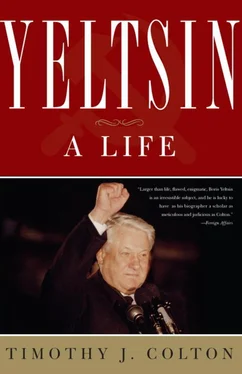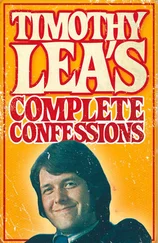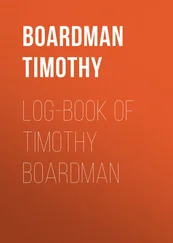In Yeltsin’s birthplace, as at many a Urals address, symbols of the past came thudding down: The Church of the Presentation, shorn of its icons and its seven-point Orthodox cross, and the bronze bells in its belfry melted down, was converted into the district House of Culture and, in the 1950s, into a movie theater. 28In 1932 and 1933, the leanest years, when crops failed and many peasants slaughtered their livestock, residents say there was cannibalism in Butka. 29The population stagnated, coming to 1,007 in the Soviet census of 1939, only 182 more than in 1897. Lenin had envisioned communism in an amaranthine slogan as “Soviet government plus the electrification of the whole country.” Butka was to be wired into the national electric grid only in 1946, after World War II. The first macadam road to Talitsa came in 1936 (asphalting waited until 1976), the first Butka school in 1937, and a spur line from the railroad, laid by corvée labor, in 1949.
In Confession on an Assigned Theme, composed hurriedly in 1989 and published in still-Soviet Russia in 1990, Boris Yeltsin sketched the Butka scene in one solitary page and without proper names, identifying individuals only by their position in the line of descent (father, mother, grandfather). He writes of “dekulakization” (as nasty a word as any in the Soviet lexicon) of “one and all”; 30of bread and seed grain running out; of armed brigands roving the village; of his grandfather, seeing the family’s last cow and horse starve, installing home stoves for cash in 1935.
Some paragraphs down, we read how the teenaged Yeltsin decided in 1949 to get his grandfather’s blessing for his plans to study construction engineering in Sverdlovsk. Grandpa had the boy build a home steambath single-handedly as a show of his commitment. As for Nikolai, the word was that in 1935, “to save the family,” he fled Butka with them to drudge in construction in the city of Berezniki, which is in the vicinity of Perm, on the western, European incline of the Urals. Later in the memoir, Boris referred in a single disarming sentence to an arrest in the 1930s. “I well remember when my father was taken away in the night, and I was six years old,” which would date it in 1937. 31The Sverdlovsk journalist Andrei Goryun, who had conversations with Yeltsin’s mother, quoted her in 1991 as saying her father-in-law, Ignatii, going on eighty, was “sent away to certain death” on the northern taiga in 1931 and made it for only several months. Goryun also quoted a statement by Boris Yeltsin at a news conference in Sverdlovsk in 1989 that his father sat “several months in prison” in 1937. 32
Hamstrung by incomplete data and by Yeltsin’s taciturnity, analysts long recited these bits and pieces as gospel truth. Unwittingly, they misstated and understated the family’s tribulations. 33Some shards, it transpires, were correct and some were not. Even in the accounts as of 1990, there were gaps and discrepancies. Ignatii Yeltsin could not have been eighty in 1931; if so, he would have been fifty when he sired his first child, most unlikely in a peasant family. Boris Yeltsin speaks in Confession of his grandfather surviving wraithlike in Butka until 1934–35, while his mother has him deported in 1931. Yeltsin describes meeting with his grandfather in 1949, almost two decades after he reputedly died in the north, and gives his age then as “over seventy,” another inconsistency. Yeltsin also states that both grandfathers got into their nineties, which would belie what his mother said about Ignatii Yekimovich. And nothing was ever said about what befell Anna Dmitriyevna Yeltsina—her very name was missing from the narrative.
The missing links in the chain of events can now be filled in, thanks to informational nuggets from family members and, for Nikolai Yeltsin, his unpublished autobiographical note and the forensic research of Aleksei Litvin, a historian from Kazan State University. The fate of the Yeltsin paterfamilias and his spouse was as harsh as Klavdiya Yeltsina presented it to Goryun, though different in some of the particulars. The die was cast when the Basmanovo village council in 1928 or 1929 slapped a punitive tax on Ignatii Yeltsin and disenfranchised him under a clause in the Soviet Russian constitution of 1918. The elections in which he had lost the right to vote were by now bogus affairs without competition; the real penalty was being fixed a member of a social category hostile to the regime and ineligible for all state benefits and services. 34In 1930 the authorities officially branded Ignatii a kulak. He was triply vulnerable, as a profit-making cultivator, a mill owner, and a blacksmith—all of them in the regime’s black book.
Dekulakization scarred one and all indirectly but a substring of the rural population directly and viciously. A decision of the party Politburo, in Moscow, in January 1930 delineated three categories of kulak. The first were the “counterrevolutionary kulak activists,” persons who had been in the White armies or were against the regime; they were to be arrested and sent to concentration camps. Category two was “rich” kulaks, who had property but had not committed political offenses; their punishment was to be sent to boreal exile in “special settlements.” Ignatii was slotted into the third, smallest, and least nefarious category. Third-class kulaks were to be expropriated and resettled, serflike, on inferior land in their home districts, and could keep some of their farm tools and possessions on the say-so of the local government. The boundaries between the three categories of kulak were indistinct, as was the line between kulaks and the “middle peasants” below. The typical dekulakized family in the Urals owned a house, one cow, and three domestic fowl, worked five to eight acres of land, and was “far from prosperous.” 35These assets were considerably less than Ignatii and Anna Yeltsin had had in the 1920s and much less than they had before 1917, so they were at risk for being put into the second category. But the third category was bad enough. In August or September of 1930, at harvest time, the village leaders impounded Ignatii’s farmstead and ran him, Anna, and his sons and daughters-in-law (one of them the pregnant Klavdiya Yeltsina) out of the community and sent them to Butka, which had been made the district seat for the area in the early 1920s. As he was put on a horse-drawn cart for the ride to Butka, the heartsick Ignatii wept and wrung his hands. He asked his daughter, Mariya, the only one of his progeny to stay behind, to pray for him: “Why am I being forced to go? For what I built with my own hands!” 36His windmill and smithy would quickly fall into ruin, their remnants hauled off for scrap by neighbors.
This was the act of spoliation, expulsion, and spite that drove the Yeltsins to rent the rough-hewn, poorly situated cottage in Butka from an elderly widow. It was a lacerating demotion from their four houses and assorted farm buildings in Basmanovo. They were among the 4,200 Urals families, or roughly 21,000 people, subjected to local deportation in 1930; 100,000 people were put in camps or sent to the north. The upper Urals by January 1932 held almost a half million deported peasants, about one in three of the USSR total. 37In Butka, Ivan, Nikolai, Dmitrii, and Andrian Yeltsin were admitted to the new Red May kolkhoz; Ignatii was not. For a year or two, like many Soviet peasants in his position, he went on the lam, hiding out with relatives and scavenging for handyman’s jobs to earn his keep. 38With the stress and despair this begat, Klavdiya Vasil’evna could well have remembered him as eighty years old.
Four years later—and this Boris Yeltsin never acknowledged openly—the noose was tightened. Sometime in 1934, Ignatii and Anna Yeltsin were rounded up in Butka and banished again. It is unclear why, since the mass deportation of peasants ended in 1931. The Soviet norm was for third-category kulaks to work in supervised crews doing heavy labor the government valued, especially in woodcutting and construction. There was no such work at Butka, which perhaps drew official attention to the Yeltsins. Ignatii’s refusal to report to the police may have provoked them to act, and there could possibly have been a connection with the problems his son Nikolai was having that spring in the city (see below). One guesses that Ignatii, beggared in 1930, was reclassified in 1934 as a second-category kulak. Even that device would have created an anomaly. The regulations in effect in the Urals exempted from deportation kulak families that did not include an able-bodied male younger than fifty, and in 1934 Ignatii Yeltsin was fifty-nine. 39
Читать дальше












